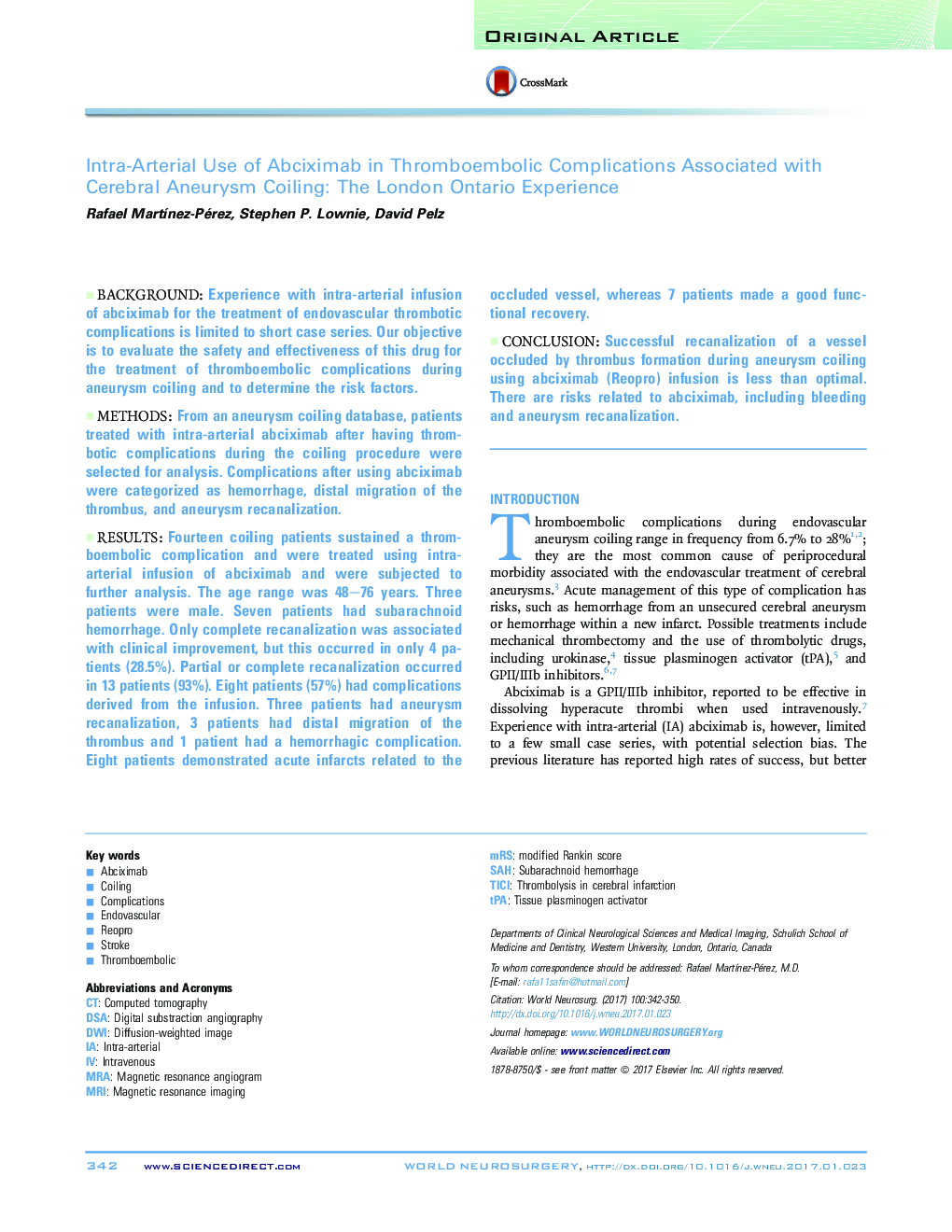| Article ID | Journal | Published Year | Pages | File Type |
|---|---|---|---|---|
| 5634513 | World Neurosurgery | 2017 | 9 Pages |
BackgroundExperience with intra-arterial infusion of abciximab for the treatment of endovascular thrombotic complications is limited to short case series. Our objective is to evaluate the safety and effectiveness of this drug for the treatment of thromboembolic complications during aneurysm coiling and to determine the risk factors.MethodsFrom an aneurysm coiling database, patients treated with intra-arterial abciximab after having thrombotic complications during the coiling procedure were selected for analysis. Complications after using abciximab were categorized as hemorrhage, distal migration of the thrombus, and aneurysm recanalization.ResultsFourteen coiling patients sustained a thromboembolic complication and were treated using intra-arterial infusion of abciximab and were subjected to further analysis. The age range was 48-76 years. Three patients were male. Seven patients had subarachnoid hemorrhage. Only complete recanalization was associated with clinical improvement, but this occurred in only 4 patients (28.5%). Partial or complete recanalization occurred in 13 patients (93%). Eight patients (57%) had complications derived from the infusion. Three patients had aneurysm recanalization, 3 patients had distal migration of the thrombus and 1 patient had a hemorrhagic complication. Eight patients demonstrated acute infarcts related to the occluded vessel, whereas 7 patients made a good functional recovery.ConclusionSuccessful recanalization of a vessel occluded by thrombus formation during aneurysm coiling using abciximab (Reopro) infusion is less than optimal. There are risks related to abciximab, including bleeding and aneurysm recanalization.
